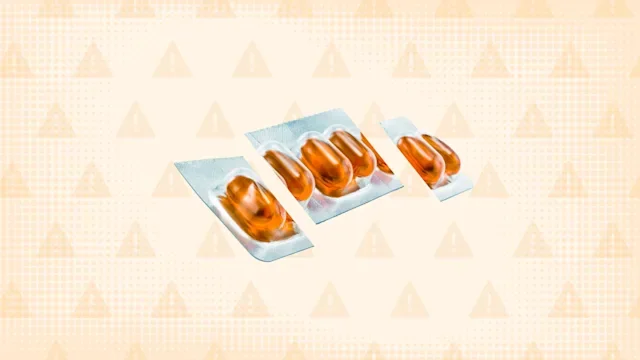Key takeaways:
Most adults get two to four colds each year. Symptoms of the common cold include cough, congestion, runny nose, and muscle aches.
There’s no cure for the common cold. But self-care and home remedies can help relieve symptoms and make you feel better faster.
If you have a cold, make sure to rest and drink plenty of fluids. Humidifiers, saltwater gargles, and warm tea with lemon or ginger can also help your symptoms.
There are over 200 viruses that can cause the common cold, and they come out in full force during cold and flu season. The average person gets two to four colds each year. And most colds last between 7 and 10 days. That adds up to a lot of sick time during cold and flu season.
There’s no cure for the common cold (and there probably never will be). But a combination of home remedies and self-care can help you feel better faster.
Here are 12 common cold self-care tips you can use the next time you’re feeling under the weather.
Search and compare options
1. Get some rest
There’s a reason rest is our first self-care tip. Getting plenty of rest is the best thing you can do for your health when you have a cold.
You may be tempted to push through your cold and keep up with your usual routine, but it’s best to take it easy.
During a viral illness, your body needs to direct as much energy as possible to fighting off the infection and recovering from damage caused by the virus. Any additional stress you put on your body will only take away important resources from these important tasks.
Try to stay home and rest during the first 2 to 3 days of your cold. You don’t have to stay in bed all day, but avoid moderate and strenuous activities, including exercise and household chores.
You’ll want to take a mental rest, too. That means taking a break from work duties and school work. Your brain uses up a lot of your daily energy to complete mental tasks. Rest and extra sleep will boost your immune system and help you recover faster.
While you’re taking it easy, consider keeping a hot water bottle or (nonelectric) heating pad nearby. The warmth can help you drift off to sleep and ease any aches and pains you may be experiencing.
How long will your cold last? Find out the typical timeline, stages of symptoms, and when to expect relief — plus what might help you feel better along the way.
You’re most contagious in the early days. Find out when you’re most likely to spread a cold, how long you’re contagious, and when it’s OK to be around others again.
Certain foods can help you feel better faster. From soup to citrus, discover what to eat (and what to avoid) to support your immune system and soothe common cold symptoms.
Staying home and resting helps you feel better faster and also protects those around you. You’re most contagious with a cold during the first 2 to 3 days of your illness. If you’re resting at home, you’re much less likely to pass the virus to others.
2. Drink plenty of fluids
Drink plenty of fluids when you have a cold. Aside from getting rest, staying hydrated should be a top priority when you’re feeling sick.
Every time you blow your nose, you lose a bit of fluid. Over the course of the day, the fluid you lose because of a drippy nose adds up. You’ll lose even more fluid if you have a low-grade fever or loose stools. That fluid loss can be enough to cause dehydration. So it’s important to drink plenty of fluids when you have a cold to prevent dehydration.
Dehydration can make you feel worse than you already do. People with dehydration are more likely to experience symptoms like:
Weakness
Fatigue
Dizziness
Lightheadedness
And dehydration can lead to thicker secretions, which are harder to clear. These thick secretions can build up in the back of your nose and block your sinuses, causing headaches, sinus pain, and tenderness.
Adults need between 90 oz and 125 oz of water each day. If you’re sick with a cold, try to drink at least this much fluid each day. Opt for water and low-sugar electrolyte drinks. You can also try chicken soup, which provides hydration from broth and may also give your immune system an extra boost.
3. Turn on a humidifier
Resting and staying hydrated are well-known self-care treatments for a cold. Humidifiers may not be as popular, but using one can also help when you have a cold.
When it comes to relieving cold symptoms, no one type of humidifier is better than another. Just make sure to take your humidifier with you as you move from room to room. So choose one that you can move easily.
Warm air humidifiers or cool mist vaporizers add moisture to the air. Extra moisture helps thin your mucus, making it easier for you to clear your nasal passages when you blow your nose. The extra moisture also helps mucus drain so it doesn’t block your sinuses. This may be especially helpful when you’re lying down. That’s because gravity can’t help mucus drain out of your nasal passages.
So a humidifier can help ease congestion and sinus pressure, and also help you sleep better at night. And that can help you get the rest you need to recover.
4. Take a hot shower or breathe in steam
Another way to relieve nasal congestion, loosen mucus, and soothe irritated airways is to take a hot shower right before bed.
Or, try this for a DIY steam treatment:
Fill a bowl with hot (not boiling) water.
Drape a towel over your head to trap the steam.
Breathe in deeply through your nose for 5 to 10 minutes.
You can also add a few drops of eucalyptus or menthol essential oil for an added soothing effect — just make sure you’re not sensitive to these oils, and never apply them directly to your skin without dilution.
5. Drink warm tea
Warm tea is an important item in your self-care toolbox. It helps replace lost fluid and fight off dehydration. But warm tea does much more than that. That’s why it gets its own mention separately from other fluids.
First, warm tea creates steam that you breathe in as you drink from your mug. This acts like a minihumidifier, thinning out your mucus so you can clear your nasal passages. The steam will also soothe any throat or nose irritation and ease postnasal drip.
And, importantly, the steam from tea isn’t too hot. Steam that’s too hot will irritate nasal passages and cause more inflammation. But that won’t happen with a mug of tea. Anything too hot won’t be drinkable, and you’ll end up putting that mug down until it reaches the right temperature. So, by the time the steam meets your nose, it will be just the right temperature to ease symptoms without causing further damage.
Another benefit of warm tea is that you can add things to it that can also help relieve a cold, like:
Honey: Researchers have found that honey works better as a cough suppressant than most cough medicines.
Ginger: Some cultures have used ginger for centuries to help treat illness. A research review showed that ginger has anti-inflammatory properties.
Lemon juice: Lemon juice can help soothe a sore throat. It also contains vitamin C, which researchers found may help reduce cold symptoms if it’s a regular part of your diet.
6. Try saltwater gargles
Saltwater gargles can soothe a sore throat from a cold. They can also loosen mucus that tends to build up at the base of your nose. And this can relieve that feeling of something being stuck in the back of your throat. Saltwater gargles also draw fluid out of inflamed tissue in the back of your throat, making it easier for mucus to pass out of the base of your nose.
You can make saltwater gargles at home by mixing ½ tsp of table salt in a full glass of warm water. Take a mouthful of the liquid and swish it around your mouth so that it hits the back of your throat. Spit out the mixture after a few seconds. You can swish and spit with more mouthfuls until you feel relief.
7. Raise your head while sleeping
Lying flat can make postnasal drip, congestion, and cough worse. So prop your head up in bed with an extra pillow or two. This can help mucus drain more easily and reduce nighttime coughing and sinus pressure, so you can get a better night’s sleep.
8. Eat nourishing, light meals
While you might not have a big appetite during a cold, eating small, nutrient-dense meals can support your immune system. Warm foods like chicken soup, brothy stews, or simple rice and veggie bowls are easier to digest and may help soothe a sore throat. Chicken soup, in particular, has been shown to have mild anti-inflammatory effects and may help clear nasal congestion.
9. Use menthol rubs or lozenges
Topical mentholated rubs (like Vicks VapoRub) and menthol-containing lozenges can temporarily ease cough and nasal congestion. They work by triggering cold receptors in your nose and throat, creating a cooling sensation that can feel soothing even if they don’t reduce symptoms directly.
10. Avoid alcohol and smoking
Alcohol and smoking (including secondhand smoke) can make your symptoms feel worse and slow your recovery. Steer clear of these during a cold to help your body focus on healing and reduce the risk of complications like bronchitis or sinus infections.
11. Take OTC medications for cold symptoms
Over-the-counter (OTC) medications can’t cure the common cold, but they can help you feel more comfortable while your body fights off the virus. Here are some good options to add to your toolbox:
Decongestants relieve nasal and sinus congestion. You can take them as pills, like pseudoephedrine (Sudafed), or as nasal sprays, like phenylephrine (Neo-Synephrine) or oxymetazoline (Afrin). But, avoid using nasal sprays for more than 3 days. Doing this can cause rebound congestion when you stop.
Pain relievers help reduce fever, headache, and muscle aches. Try acetaminophen (Tylenol) and ibuprofen (Advil, Motrin). Always check labels to avoid doubling up on active ingredients, since many cold and flu preparations combine decongestants with pain relievers.
Expectorants thin mucus to help with coughing. Guaifenesin (Mucinex) is a common example. It’s often found in combination cold and flu medications like Mucinex, DayQuil, and Robitussin.
Antihistamines may help with cold symptoms. But there are a few things to know before reaching for them. Newer antihistamines, like loratadine (Claritin) and fexofenadine (Allegra), will only help if you also have allergies that are making your symptoms worse. But if you don’t have allergies, these won’t help. Older antihistamines like diphenhydramine (Benadryl), doxylamine (Unisom SleepTabs), and chlorpheniramine (Aller-Chlor) can help dry up nasal secretions and sleep better at night.
Nondecongestant nasal sprays like cromolyn sodium (NasalCrom) and even simple saline nasal sprays can help clear and moisten nasal passages and the throat.
Zinc may reduce the duration of symptoms if you take it within 24 hours of onset. You can take zinc as a throat lozenge or as a supplement. It’s not exactly clear what the right dose is, but take care: Too much zinc can cause side effects. To be safe, aim for 15 mg to 30 mg daily.
Quiz: Is it a cold or COVID-19?
12. Monitor your symptoms
Most colds resolve on their own, but it’s important to know when to get medical attention. You should see your primary care provider if symptoms worsen after 3 days, or you develop any of the following symptoms:
Fever
Trouble breathing
Rapid breathing
Shortness of breath
Trouble keeping down fluids
Facial pain
These are signs that your illness is more than just a cold. You may need testing for other viral infections, like COVID-19 or the flu, a sinus infection, or lower respiratory tract infections, like pneumonia or bronchitis. You may also need prescription treatments to help you fight off these infections.
Frequently asked questions
There’s plenty of debate among experts about which home remedies actually help with cold symptoms — and the data is often mixed. But there’s one thing all healthcare professionals agree on: Antibiotics won’t treat your cold. Colds are caused by viruses, not bacteria, and taking antibiotics unnecessarily can do more harm than good. As for popular remedies like vitamin C, zinc, or echinacea, the evidence isn’t strong — but some people find them worth a try, especially when used early. Just be sure to follow dosing recommendations and check with a healthcare professional if you have any questions or take other medications.
You can’t avoid colds completely. There are more than 200 different cold viruses, and you can catch a cold from someone who hasn’t developed symptoms yet. That said, there are steps you can take to support your immune system and lower your risk. These habits won’t guarantee you’ll dodge every virus, but they can help keep your body better prepared when one comes your way.
Start by washing your hands often, especially after being in public or touching shared surfaces. Get plenty of sleep (at least 7 to 9 hours a night), eat a balanced diet full of nutritious foods, and try to manage stress — since high stress levels can weaken your immune response. If your vitamin D levels are low, taking a supplement may help reduce how often you get sick. And while zinc won’t prevent a cold, taking it within 24 hours of the first symptoms may help you feel better faster. Staying hydrated is also important — but there’s no need to overdo it.
There’s plenty of debate among experts about which home remedies actually help with cold symptoms — and the data is often mixed. But there’s one thing all healthcare professionals agree on: Antibiotics won’t treat your cold. Colds are caused by viruses, not bacteria, and taking antibiotics unnecessarily can do more harm than good. As for popular remedies like vitamin C, zinc, or echinacea, the evidence isn’t strong — but some people find them worth a try, especially when used early. Just be sure to follow dosing recommendations and check with a healthcare professional if you have any questions or take other medications.
You can’t avoid colds completely. There are more than 200 different cold viruses, and you can catch a cold from someone who hasn’t developed symptoms yet. That said, there are steps you can take to support your immune system and lower your risk. These habits won’t guarantee you’ll dodge every virus, but they can help keep your body better prepared when one comes your way.
Start by washing your hands often, especially after being in public or touching shared surfaces. Get plenty of sleep (at least 7 to 9 hours a night), eat a balanced diet full of nutritious foods, and try to manage stress — since high stress levels can weaken your immune response. If your vitamin D levels are low, taking a supplement may help reduce how often you get sick. And while zinc won’t prevent a cold, taking it within 24 hours of the first symptoms may help you feel better faster. Staying hydrated is also important — but there’s no need to overdo it.
The bottom line
There’s no cure for the common cold, but home remedies, OTC medications, and self-care can help you feel better. Make sure to rest and drink plenty of fluids when you’re sick with a cold. A humidifier, warm tea, and saltwater gargles can help thin your mucus so that you can breathe easier.
Get medical care if your symptoms aren’t better after 3 days or you’re experiencing fever or trouble breathing. These could be signs of a more serious health condition.

Why trust our experts?


References
Åberg, N., et al. (2006). The effect of inhaled and intranasal sodium cromoglyeate on symptoms of upper respiratory tract infections. Clinical & Experimental Allergy.
Abuelgasim, H., et al. (2021). Effectiveness of honey for symptomatic relief in upper respiratory tract infections: A systematic review and meta-analysis. BMJ Evidence-Based Medicine.
Besedovsky, L., et al. (2011). Sleep and immune function. Pflügers Archiv - European Journal of Physiology.
Centers for Disease Control and Prevention. (n.d.). Preventing and managing common cold.
InformedHealth.org. (2023). Common colds: Does vitamin C keep you healthy? Institute for Quality and Efficiency in Health Care.
Institute of Medicine (US) Panel on Micronutrients. (2001). Dietary reference intakes for vitamin a, vitamin k, arsenic, boron, chromium, copper, iodine, iron, manganese, molybdenum, nickel, silicon, vanadium, and zinc. National Academies Press.
Mashhadi, N. S., et al. (2013). Anti-oxidative and anti-inflammatory effects of ginger in health and physical activity: Review of current evidence. International Journal of Preventive Medicine.
Ohar, J. A., et al. (2019). The role of guaifenesin in the management of chronic mucus hypersecretion associated with stable chronic bronchitis: A comprehensive review. Chronic Obstructive Pulmonary Diseases: Journal of the COPD Foundation.
Rennard, B. O., et al. (2000). Chicken soup inhibits neutrophil chemotaxis in vitro. Chest.














